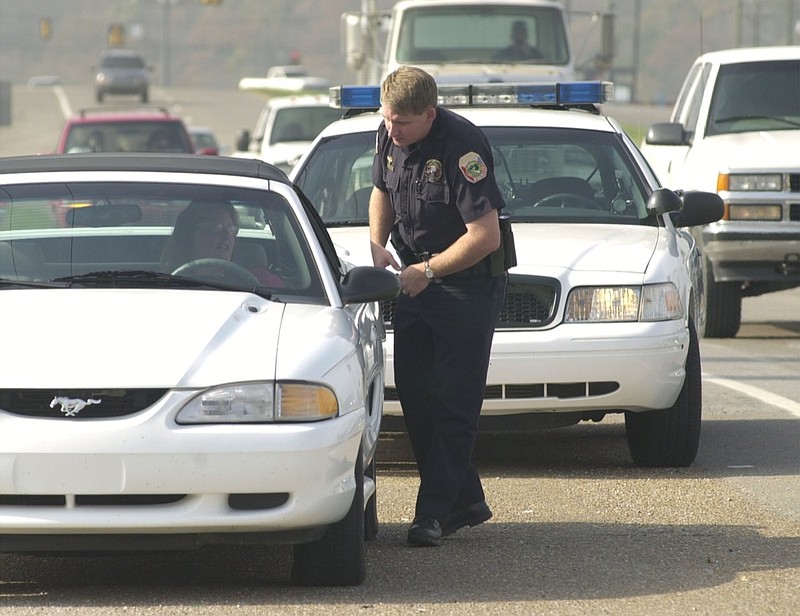The Tennessee Bureau of Investigation's probe into the Collegedale Police Department's alleged traffic ticket quota system has come to a close, and the findings have been given to the district attorney's office for review, the bureau confirmed Friday.
The TBI has been investigating the traffic quota allegation since July, the same month a former police officer filed a lawsuit against the city and its officials, claiming he was forced to resign in January 2019, just days after confronting supervisors over the alleged quota system.
Since then, three more officers filed lawsuits claiming they were fired in September for cooperating with the TBI investigation. And the city's assistant police chief, James Hardeman, resigned just days after the firings. The reason for his resignation was unclear.
Now that the TBI has turned its investigation over to Hamilton County District Attorney Neal Pinkston's office for review, it's up to Pinkston to decide whether he will present the case to a grand jury for criminal indictment.
Collegedale city spokeswoman Bridgett Raper declined to comment Friday.
TBI investigative documents are, for the most part, exempt from public record. Therefore, it's unclear at this point what the investigation found.
But according to lawsuits and some police officers' disciplinary files, Collegedale city administration began documenting shift productivity of its police officers and began setting a certain number of activities that needed to be achieved on a daily, weekly and monthly basis as early as 2015.
Local governments are prohibited from establishing "formally or informally, a plan to evaluate, promote, compensate, or discipline a law enforcement officer" based on a predetermined number of traffic citations, according to state law. And administrators "may not require or suggest" to officers that they are required to issue a specific number of traffic citations within a certain period.
In disciplinary files obtained by the Times Free Press, a "supervisor notes entry" documents a discussion about "methods to bring the shift numbers up to par" in August 2015.
Sgt. Jamie Heath, who was assigned to third shift patrol, wrote, "The Chief and I had been observing for several months the fact that the shift numbers were extremely low in comparison with other shifts, regarding officer generated activities, i.e.: traffic stops, arrests, etc."
"Based on [his] discussion with Chief [Brian] Hickman, and at his direction," Heath goes on to list a six-point plan to improve officer performance. Two of those points stated that officers were required to "stop vehicles at any time, whether the violation is big or small" and to "not issue Verbal Warnings, and to issue Written Warnings as a minimum."
In a response to the entry, then-Lt. Darrell Hannah wrote, "I have made it clear several times myself that verbal warnings do nothing for our yearly stats."
He ends his response by saying, "If productivity remains low let me know and we can we can [sic] work on a strategy that will include the documentation on the employees yearly evaluation along with a recommendation of not receiving the yearly step raise."
By December 2018, the department then began directing officers to meet a minimum number of "enforcement activities" and "patrol activities" each month, the lawsuit states.
Enforcement actions were defined as written citations or arrests, and patrol activities included neighborhood, business and school patrols, according to a statistic sheet posted to a bulletin board in the department's headquarters. But what did not count toward "enforcement activities," according to the lawsuit, were arrests that resulted from 911 calls. For example, if an officer responded to a reported domestic violence incident and made an arrest, that arrest would not count. The arrest would have to stem from a traffic stop.
Officers who reached their set numbers were more likely to be considered for promotions, newer patrol cars or extra training opportunities, the lawsuit states.
While city representatives have declined comment on the allegation, the city has denied any existence of a quota system in its response to at least one of the lawsuits.
Contact Rosana Hughes at rhughes@timesfreepress.com or 423-757-6327 with tips or story ideas. Follow her on Twitter @HughesRosana.
